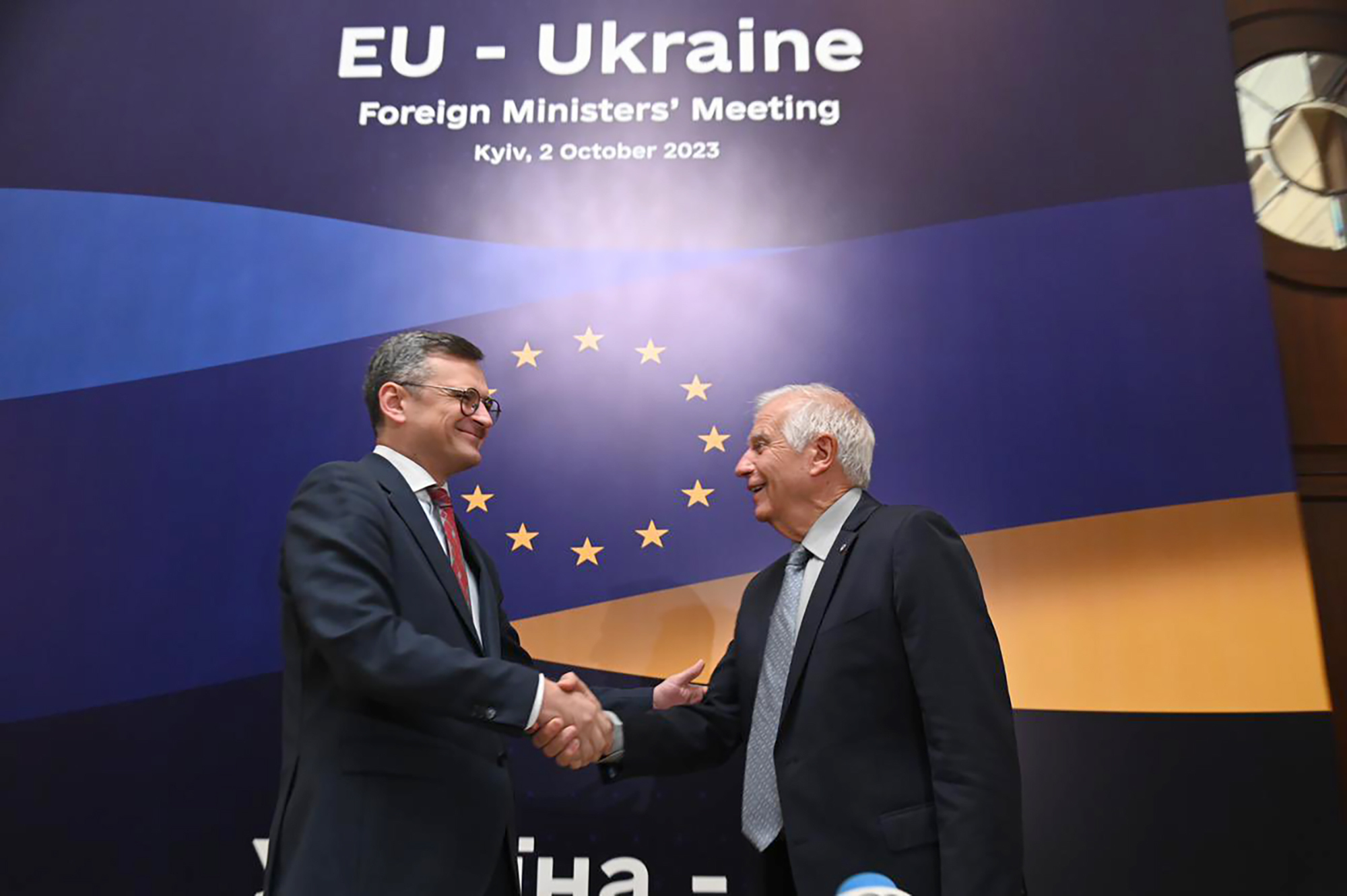EU foreign ministers convened in Kyiv on Monday morning to express the bloc’s continued solidarity for war-torn Ukraine in its efforts to dispel Russian invaders.
It marked the first time a meeting between foreign ministers of the bloc’s national governments met outside of the European Union, which showed the bloc’s future support for Ukraine’s EU membership.
“We are convening a historic meeting of EU Foreign Ministers here in Ukraine, candidate country and future member of the EU,” the bloc’s top diplomat, Josep Borrell, posted on X, formerly Twitter.
“We are here to express our solidarity and support to the Ukrainian people,” he added.
“For the first time in history, outside current EU borders, but also within its future borders,” said Ukraine’s Foreign Minister Dmytro Kuleba ahead of the talks.
The meeting comes after a number of incidents that hinted at the West’s fatigued support for the country.
On Sunday, former prime minister Robert Fico won the most votes in neighboring Slovakia’s general election, giving him the first opportunity to form a coalition government. Fico’s SMER party secured nearly 23 percent of the vote running on a ticket of refusing to send “a single round” of ammunition more to Kyiv.
[pp id=94151]
Fico’s stance is consistent with other Visegrád nations, namely, Hungary and Poland, who have now both vowed to focus on their own rearmament and refrain from backing Ukraine militarily.
Support also appeared to be waning across the Atlantic over the weekend as the U.S. Congress excluded Ukraine funds from an emergency spending deal. Kuleba told reporters ahead of the EU meeting on Monday that he remained confident of U.S. support in the ongoing conflict with Russia.
[pp id=93980]
“We don’t feel that the U.S support has been shattered… because the United States understands that what is at stake in Ukraine is much bigger than just Ukraine,” he said.
Despite the political support from Brussels, a recent survey conducted regularly on behalf of the bloc showed that fewer Europeans fully back the continued financial and humanitarian support of Ukraine than at the start of the conflict.
According to the latest Eurobarometer data, unequivocal support for receiving Ukrainian refugees, imposing economic sanctions against Russia, and providing humanitarian aid to Kyiv has now dropped below a majority of EU citizens.






